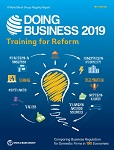Overview
There are myriad supply-side impediments to gaining access to electricity, but safety is too often absent from the discussion. Faulty wiring can cause direct injury and undermine production; among all fires, electrical fires typically cause the most deaths and economic losses. And because access to electricity is a key driver for firm production, managing the risks associated with its use is imperative.
This year, the case study on getting electricity highlights the benefits of comprehensive wiring regulation. In short, a robust regulatory framework governing the electricity sector is necessary to maintain public safety. For example, accreditation systems for electricians eliminate asymmetry of information so the public can differentiate a good electrician from a bad one. Regulation is also necessary to offset negative market externalities that arise when a firm is not liable for the full cost of an economic decision.
Doing Business data suggest that electricity services are in no way made worse where there is regulation that governs internal wiring inspections and qualifications. In other words, regulatory regimes that protect the public from electrical failure incidents also tend to deliver good services through an efficient grid connection process and a reliable network.
Main Findings
- A robust regulatory framework governing the electricity sector and accrediting the electrician profession protects public safety by helping the market overcome asymmetry of information and moral hazards.
- Doing Business data show that approximately three-quarters of economies have an electrical code or regulation setting forth standards for electrical installations.
- Requirements for qualifications and skill development in the electrical profession can prevent electrical system failure incidents. Barely two-thirds of the economies covered by Doing Business require electricians to have accreditations guaranteeing their qualifications to carry out a building’s internal wiring.
- Mandatory inspections and liability regimes introduce accountability vis-à-vis the party undertaking the internal wiring works of a building. Inspections can be carried out by utilities, certified electrical engineers or third-party inspection bodies.
- Doing Business data indicate that effective regulatory regimes that protect the public from electrical system failure incidents also tend to have an efficient grid connection process.

